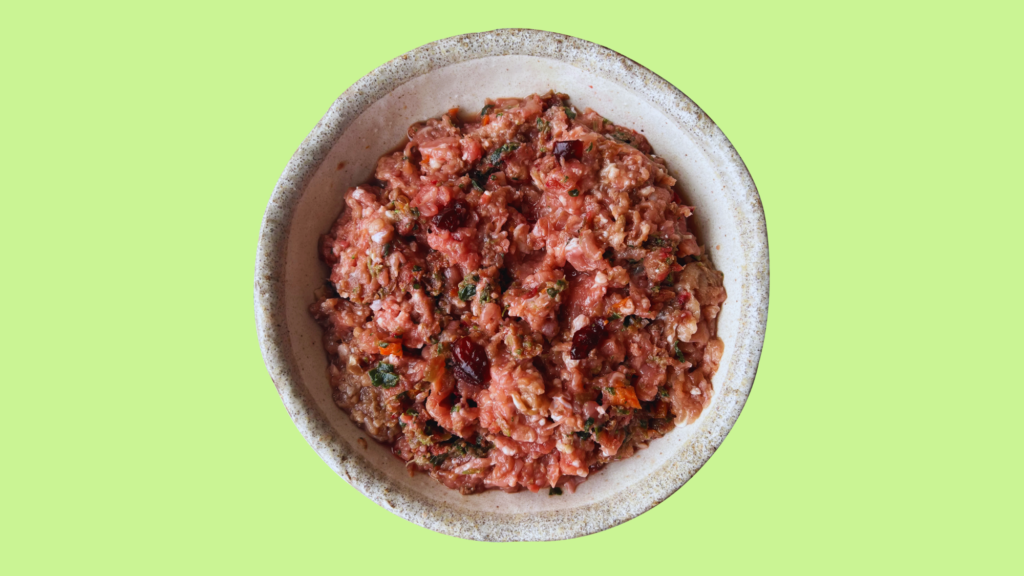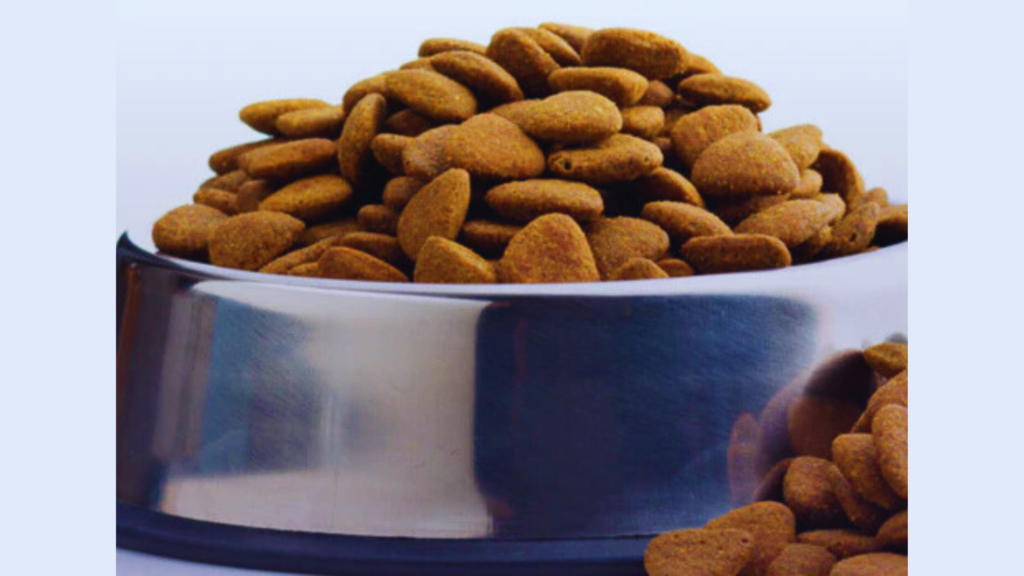Raw Food Diets May Lead to Better Gut Health: A recent study suggests that dogs fed raw food rather than conventional kibble may have better gut health, with fewer gastrointestinal issues in the long run. The research, which surveyed over 7,000 dog owners in Finland, presents fascinating insights into how early dietary choices can shape a dog’s digestive health in adulthood.
To discover what activities bring joy to Australian Cattle Dogs, check out this detailed guide on What Do Australian Cattle Dogs Love.
Blog Highlights
ToggleThe Connection Between Diet and Gut Health in Dogs
Raw Food Diets May Lead to Better Gut Health
Gut health is crucial for both humans and animals, as it affects everything from nutrient absorption to immune system functioning. In recent years, there has been increasing interest in how diet influences the microbiome of dogs—the community of microbes living in their digestive system.
A new study from the University of Helsinki, led by Anna Hielm-Björkman, offers significant findings on the subject, revealing a strong link between what dogs eat as puppies and their risk of developing chronic gastrointestinal issues in later life.

The study focused on the eating habits of more than 7,000 dog owners across Finland from 2009 to 2019, with a particular emphasis on what their puppies consumed between the ages of 2 to 6 months.
To find the ideal collar size for your Australian Cattle Dog, check out this guide on What Size Collar for Australian Cattle Dog for helpful tips on measurement and fit recommendations.
Hielm-Björkman and her team specifically wanted to understand how these early dietary choices impacted the risk of gastrointestinal problems in adulthood, particularly chronic enteropathy (CE)—a condition where a dog experiences gastrointestinal distress lasting more than three weeks.
The findings were striking. The research revealed that dogs fed primarily on kibble (dog food) were 29% more likely to develop gastrointestinal issues later in life compared to those fed raw meat, leftovers, or other non-processed foods. This raises important questions about the long-term impact of commercial dog food on canine gut health.
The Role of Raw Meat and Leftovers in Dog Diets
Hielm-Björkman and her team found that Finnish dogs’ diets largely fell into three categories: commercial dog food, owners’ cooked leftovers, and non-processed foods such as raw meat, fish, and berries. Each type of food had distinct effects on the dogs’ health, with raw food and leftovers seeming to contribute to better gastrointestinal health.

Dogs fed a varied diet consisting of raw meat and non-processed food were less likely to develop chronic enteropathy (CE), a condition that can cause chronic vomiting, diarrhea, weight loss, and other digestive issues.
Find out what color collar looks best on a Rottweiler to complement their bold appearance and highlight their unique features.
Raw foods, according to the study, may offer a broader range of nutrients and digestive benefits compared to processed dog food, which often contains high levels of carbohydrates and additives that are less suitable for a dog’s digestive system.
Why Kibble May Contribute to Digestive Issues
So, what is it about kibble that could contribute to gut health problems? According to Hielm-Björkman, kibble-based dog food consists mainly of carbohydrates, which dogs don’t necessarily need in large amounts.
Just as excessive sugar in human diets can cause inflammation, the high-carb content in commercial dog food could lead to low-grade inflammation in dogs, affecting their gut health over time.

Learn what size collar for a Rottweiler is ideal by following this detailed guide to ensure a perfect fit for your dog’s comfort and safety.
Hielm-Björkman highlights that many pet owners are taught to believe that dog food provides a balanced diet for their pets, but there’s mounting evidence suggesting that this may not be entirely true.
When dogs are fed a more natural diet consisting of raw food, fish, or leftovers, they seem to experience fewer chronic diseases, including gastrointestinal problems. This may be due to the fact that their bodies are more adapted to digesting non-processed foods, which may help regulate their microbiomes more effectively.
The Importance of a Balanced and Varied Diet
The study suggests that diet variety plays a significant role in a dog’s health, particularly when it comes to gut health. Hielm-Björkman advises dog owners to provide their pets with a diet that’s as varied as possible.

At least 20% of their meals should consist of raw food, as it could help balance the gut microbiome and prevent gastrointestinal problems. This approach could offer a more holistic and long-term solution to keeping dogs healthy, avoiding the need for medication or long-term treatments for chronic conditions.
It’s important to note that this study does not claim that all dogs should be fed raw meat exclusively. Every dog is different, and factors like breed, age, activity level, and health conditions need to be taken into account when determining their ideal diet.
Some dogs may thrive on kibble or a combination of both commercial food and fresh food, while others may benefit more from a raw food diet. You can learn whether Dachshunds need special collars and find expert recommendations in this article: Do Dachshunds Need Special Collars.
What Should Pet Owners Take Away From This Study?
For dog owners, this research offers a compelling reason to reconsider the long-term effects of feeding their pets commercial dog food. The results suggest that a diet consisting mostly of processed kibble could increase the likelihood of gastrointestinal problems later in life.

This could lead pet owners to explore alternative feeding options, such as fresh, non-processed foods, leftovers, or raw meat.
However, it’s important for pet owners to do their own research and consult with a veterinarian before making significant dietary changes for their pets. While raw food diets may be beneficial for some dogs, they also come with risks, such as the potential for bacterial contamination.
It’s essential to handle raw food properly and ensure a balanced diet that meets all of a dog’s nutritional needs. Veterinarians can help guide pet owners in making informed decisions about the best diet for their dogs based on their individual health needs and circumstances.
The Broader Implications of the Study
This study is part of a growing body of research examining the connection between diet and health in dogs. As pet owners increasingly look for natural, holistic alternatives to commercial pet food, this research suggests that non-processed diets could play a vital role in preventing chronic illnesses. Additionally, it highlights the importance of considering a dog’s gut microbiome when making dietary decisions.
The findings of this study may also prompt pet food manufacturers to reconsider the contents of their products. While many commercial pet foods are marketed as being nutritionally balanced, this study reveals that they may not be the most effective option for ensuring long-term digestive health. It could push for more research and innovation into dog food formulations that promote better gut health.
To decide whether a collar or harness is best for your Dachshund, check out this helpful guide: What is Best for Dachshund Collar or Harness.
Rethinking Dog Food Choices for Better Gut Health
While more research is needed to establish a direct cause-and-effect relationship between diet and gastrointestinal problems in dogs, the findings of this study are certainly thought-provoking. Dog owners who are concerned about their pet’s gut health may want to consider diversifying their dog’s diet, incorporating raw food or leftovers alongside commercial kibble. Discover the best collars for Siberian Huskies for both style and comfort.
Ultimately, what’s clear is that there is no one-size-fits-all answer to dog nutrition. As with humans, the key to a healthy diet for dogs may lie in variety, balance, and ensuring that their unique nutritional needs are met. Consulting a veterinarian before making any major dietary changes is always recommended. Hope so, now you know Raw Food Diets May Lead to Better Gut Health.
References
- Hielm-Björkman, A., et al. (2023). “Dietary patterns and chronic enteropathy in dogs: A longitudinal study.” Scientific Reports. DOI: 10.1038/s41598-023-27866-z
- Sandri, M., et al. (2017). “Raw meat-based diets for dogs: Impact on gut microbiota and fecal quality.” Animal Microbiome.
- Kim, J., et al. (2020). “Comparison of gut microbiota between raw-fed and kibble-fed dogs.” Frontiers in Veterinary Science.
- Schmidt, M., et al. (2019). “The impact of diet on gut microbiota in dogs.” BMC Veterinary Research.





